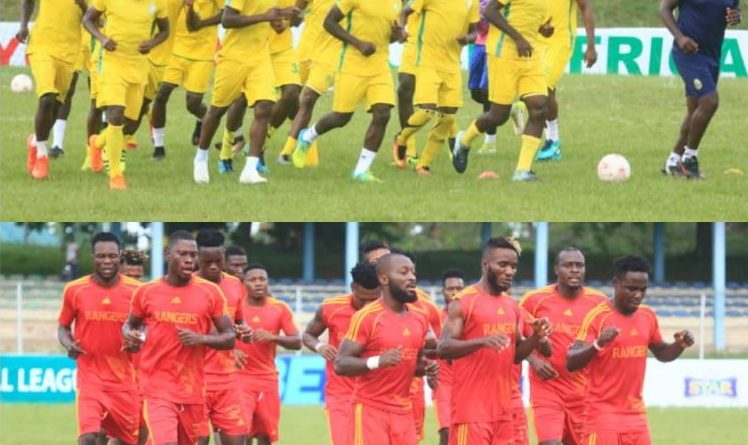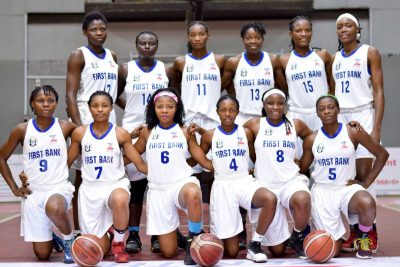Crowdfunding As Alternative Financing Option For Nigerian Sports Clubs
By Chiemeka Nwosu
One of the hindrances to the growth of sport clubs in Nigeria is a lack of adequate funding, as most clubs are founded and managed by the state who do not share the competitive drive to make profit likened to private owned clubs, but rather are over-reliant on often insufficient state funding allocations. In the Nigeria Professional Football League (NPFL) for instance, more than a fraction of the clubs are government owned. Past events have proven this process to not just be grossly inadequate but also harmful to administration of the clubs and external appeal, as government infusion in sports is often viewed as hindering the transparency of the game and undermining its autonomy. This begs the need to explore new forms of investment with a more progressive mode of revenue generation, whereby interested investors who share a passion for a particular sport and desire to see it grow exponentially are given the platform to actively participate in its growth and success. This is where Crowdfunding comes in.
On March 27, 2020 Nigeria’s Securities and Exchange Commission (SEC) made good on its plans to introduce regulations for Crowdfunding as a means of alternative capital generation by Nigerian companies, by releasing a proposed draft of the Rules of Crowdfunding for public/stakeholder perusal and feedback. This comes as a welcome development as the current laws in Nigeria do not provide for the existence or regulation of crowdfunding activities, which in turn has strained the inflow of potential investors into crowdfunding projects in the country.
This article seeks to examine how the new SEC crowdfunding regulations could be a welcome development for income generation and project funding by Nigerian sports clubs/teams. Specifically, it looks at:
°How crowdfunding works;H
°Nigeria’s draft New Rules for crowdfunding will operate
°Analysis: case study of a NPFL club
°Tips for clubs and fans who intend to participate in crowdfunding.
°Comment
Types of crowdfunding
Crowdfunding simply put, is a modern financing method which makes use of online platforms to raise small amounts of money from a large number of public investors for the purpose of funding a specific project or cause. A crowdfund engagement creates a tripartite arrangement between the fund seeker (as issuer), the crowdfunding platform (as intermediary) and the crowd (as investors). The digital revolution makes it possible for structured crowdfunding platforms that serve as intermediaries between fund seekers and investors, to work in tandem with social networks to offer new opportunities to raise capital to start or develop a business, or execute a specific project.
A Crowdfunding venture can take different forms. It could be Reward-Based, Investment Based, Lending Based or Donation Based crowdfunding.
In a reward-based crowdfunding, investors receive certain rewards for funding a project. It could be first consideration to products or services, discounted ticket fees etc. In the 2014 Sochi Olympics, a sizeable number of athletes crowdfunded their way to the Olympic games. Using the reward-based method, fans who donated got mentorship sessions and memorabilia from the athletes in return.
A crowdfunding offering is loan-based when there is expectation of some rate of return on invested capital. The UK Financial Conduct Authority defines loan-based crowdfunding as a platform where consumers lend money in return for interest payments and a repayment of capital over time.
The donation model of crowdfunding is the most frequently used in the sporting space as it the easiest way to collect funds. It basically plays on the philanthropy of its donors. Popular football club Manchester United commenced project ‘kit it out’ to raise funds for the building of a new facility and function room at their new football ground as well as improve the necessary sport infrastructure for the benefit of the community, using this model.
The investment-based model comes to play where persons invest in a company’s business by purchasing its securities. The UK Financial Conduct Authority defines investment-based crowdfunding as a platform where consumers may invest directly or indirectly in new or established businesses by buying investments such as shares or debt securities. A UK Jockey Club employed this method by launching a retail bond scheme to raise 45 million euros to redevelop its club facilities to which it promised annual returns of 7.75% of capital investment.
Why regulation is necessary
The need for regulation mainly stems from a lack of investor knowledge or ‘sophistication’. Naturally, the general public (who by and large aren’t used to investing) may struggle to adequately assess the risks involved in purchasing shares or debentures in a small company, especially given the uncertainty associated with their financial structure, business model and time horizons.
As discussed below, the primary intent of regulating Crowdfunding is to try to provide adequate ‘investor protection’ for the general public, allowing them to understand and to participate as safely as possible in crowdfunding projects.
How Nigeria’s proposed crowdfunding regulations will work
The Investment and Securities Act (ISA) and the Companies and Allied Matters Act (CAMA) are the principal pieces of legislation governing investment financing in Nigeria. Regrettably, these laws did not foresee the advent of new financing methods such as Crowdfunding, leaving the sector largely underdeveloped. The ISA and CAMA are primarily aimed at regulating public companies, and expressly prohibit private companies from making invitations to the public to acquire their securities (as is the case in most countries). They also prohibit persons from depositing money with a private company for a fixed period. Private companies (particularly younger ones without strong credit ratings) are therefore left with limited options when it comes to raising funds to expand their operations. The more mature ones could apply to become public, but this is often disproportionately expensive for their needs. Angel investors, venture capital funds, and private equity offer other options, but not only are they very selective (and scarce) in catering for the financial needs of start-ups and small companies, they also do not afford them the flexibility to raise funds on their own terms or maintain their ownership control.
First Bank Women Basketball Club
Hence, there is a genuine need for a simpler, more accessible and flexible financing model, with its own set of regulations, which is where crowdfunding comes in.
The proposed crowdfunding regulation (New Rules) put forward by the SEC works as follows:
Who can issue? The regulation allows any Micro, Small or Medium enterprise (MSMEs) that has been in operation for at least two years, to raise funds through a crowdfunding project by offering its shares or debt securities for sale to the public. The Commission by its powers under the Act exempts (through the regulation) an issuing private company duly incorporated in Nigeria and accredited by a Crowdfunding portal, from the provisions in the Securities Act that otherwise restricts them from offering securities to the public. Basically, allowing small companies to undertake limited issuances of debt or equity securities without most of the existing bottlenecks.
Funding limit: A micro enterpriseis limited to raising an amount not exceeding Fifty Million Naira ($131,600), while a small and medium enterprise can only raise a maximum amount of Seventy Million ($184,240) and One Hundred Million Naira ($263,200) respectively, from the public within a twelve-month period.
Funding target: The issuer must have a set target (time limit and minimum amount) when commencing a crowd fund campaign, which will be imputed into the funding portal. The funds raised by the investors through the portal would be sent to the issuer only after the capital raised is equal to or greater than the funding target. Where the target is not reached within the time limit, the offer will be withdrawn and the money generated will be returned to the investors, with an option for the issuer to commence a new offering after the lapse of 90 days post withdrawal. A welcome development with the funding target is the minimum threshold which is put at 50%. This means that even though an issuer may not meet his desired target, he could still be permitted to collect the funds generated provided it meets 50% of desired outcome.
Who can invest? Investment participation is open to anyone. However, the amount that could be invested is restricted depending on the investor’s class (which is broken into retail, high net worth, sophisticated and qualified institutional investors, under the rules). A retail investor is restricted to invest not more than 10% of their annual income in a calendar year. This restriction does not apply to high net worth, sophisticated or qualified institutional investors owing to their higher level of investor knowledge and sophistication.
Trading restriction: Investors (apart from certain exempted persons) have limitations on being unable to resell their shares in the first year from date of purchase and as such will need to hold said investment for the defined period of time. This is unlike investing in companies listed on the Nigerian Stock Exchange where one can quickly and easily trade securities on the secondary market.
Crowdfunding portal requirements; The crowdfunding portal that serves as the intermediary between the issuing company and the investors, must also first be registered with the SEC. Where a crowdfunding platform located outside Nigeria actively targets Nigerian investors, it would be considered a crowdfunding portal in Nigeria and as such would be required to register with the SEC. A crowdfunding portal is also required to have a minimum paid-up capital of One Hundred Million Naira ($263,200) before it can be registered to operate as such.
Disclosure of information: In a bid to protect investors, A crowdfunding portal is mandated to disclose all relevant information relating to its issuers, the use of its platform, procedure for complaints handling or dispute resolution, as well as the fees, charges or expenses that may be imposed on an issuer or investor. It is also enjoined to disclose likelihoods of risk and provide education materials and programs to educate (especially retail) investors on what they need to know before participating in funding through the platform. The regulation mandates due diligence checks on fundraisers by way of sourcing background information on their board of directors and controlling shareholders, verifying the issuer’s business proposition, and ensuring that the issuer complies with all the regulations on Know-Your-Customer (KYC), Anti-money laundering and Terrorism financing, as stipulated by the commission. Funding portals are also obligated to adhere to data protection protocols as regards information gotten from investors using their platform.
Plateau United FC
Crowdfunding intermediary: Only a registered crowdfunding intermediary is allowed to operate and register a crowdfunding portal in Nigeria. In the same vein, only entities registered as Exchange, Dealer, Broker, Broker/Dealer or Alternative Trading Facilities (as prescribed under the Act and the SEC Rules and Regulations) may be registered as Crowdfunding Intermediaries. Such registered intermediary will be considered a ‘restricted dealer’ which means that they can only carry out crowdfunding related activities.
Restriction on cross ownership: For avoidance of conflict of interest, an issuer is not allowed to make use of a crowdfunding portal which has an ownership stake of more than 5% of the issuer’s securities. What this means is that an issuing company cannot raise funds through a self-created or self-directed crowdfunding portal.
An issuer is also restricted from hosting an offer concurrently on multiple funding portals.
Analysis (case study of a crowdfunding operation in the NPFL)
Are the New Rules on crowdfunding adequate and will sports clubs or athletes be able to take advantage of them to raise money? Let’s examine a hypothetical case of a football club in the NPFL.
Eligibility
All clubs in the NPFL are companies duly registered with the Corporate Affairs Commission (CAC), mostly as private LLC’s. A club registered as a public company cannot engage in crowdfunding as it is expressly exempted under the proposed regulations, because the ISA has already made ample provisions for registration and securities trading by public companies (as above). From the angle of an MSME, the SME Development Agency of Nigeria (SMEDAN) defines micro enterprises as those with total assets (excluding land and building) of less than Five Million Naira ($13,160) small enterprises as those with total assets of Five Million Naira and above but not exceeding Fifty Million Naira ($131,600), and medium enterprises as those with total assets of Fifty Million Naira and above not exceeding Five Hundred Million naira($1,316,000). On this basis, a football club could qualify for crowdfunding under the regulations.
Peculiarity of the crowd
The main objective of an issuer is to raise capital from a large number of small investors a.k.a; the crowd. For football clubs, crowdfunding could be considered advantageous because its investors (especially for seed funding) would almost often be made up of members/fans who share a common interest and preference for the sport. All the more reason why sports clubs often employ the reward or donation-based model of crowdfunding as it serves best to raise capital from non-professional participants who are not primarily motivated by the prospect of financial return on their investment. Nonetheless, an issuing club could use an investment-based platform which would connote a possible return on invested capital and thus would mean that such clubs must be duly authorized by the SEC before such an engagement can operate.
Regulatory requirements:
The regulatory requirements of the rules governing the NPFL afford the possibility of equity participation in the clubs to be afforded to private investors. The rules also provide that notice (in prescribed form) shall be given to the League Management Company (LMC) where any person directly or indirectly acquires any significant interest in a club. Unfortunately, the proposed crowdfunding regulation was silent on the forms of crowdfunding under its purview. Even though it could be surmised through its content that the regulation mainly covers investment-based crowdfunding, it would be best for the final draft to expressly state this fact, so as to prevent uncertainty by issuers and intermediaries who may wish to engage a donation or reward based crowdfunding platform. Ideally, sports clubs that intend to use a reward or donation-based portal need not go through the procedure required of an issuer who intends to employ an investment or loan-based funding platform.
Please note that while we have used the example of a football club in this section, crowdfunding is equally applicable to all other sports that meet the eligibility criteria.
Key tips for sports clubs / fans when engaging in crowdfunding
Opportunity to identify and engage your fan base; The beauty of crowdfunding is that it could solve two issues at once; financing and fan engagement. Sports clubs would be better served by getting familiar and paying closer attention to the digital space, through a dedicated website, social media and emails. The NPFL rules for instance, mandate that all clubs adopt a working website platform, modern media and communication standards, regrettably this position is yet to be enforced. Through this avenue they can share club history, showcase accolades and accomplishments, to attract and grow a reputable fan following.
Preferably employ a donation or reward-based funding model; It is important to know the nature of your club. Where the club/team is a small cadre club it is advisable to kick start with a donation or reward model which does not put the fund raiser under pressure of expected financial returns and mandatory registration requirements. A club that has attained a certain level of popularity and feels the need to take things to the next level can then decide to use the investment model.
Be realistic with your target: A club’s first funding target should not be to build a stadium or offer up a majority stake in its ownership structure. These may prove to be herculean tasks and adversely affect investor participation. It pays to be realistic about what you aim to achieve; it could be a funding for a new kit, facility renovations or a community motivated project.
Engage professional counsel; The importance of seeking legal and investment opinion/advice cannot be over emphasized. Whether you are a fundraiser or an investor, working with a professional is necessary for ensuring your venture functions smoothly and is compliant with all the relevant adjoining legal and regulatory obligations.
Comment
The proposed rules on crowdfunding was exposed to the Nigeria public for their comments and feedback, within a one-month window from the date of its release. Some stakeholders have voiced their concerns with certain provisions of the rules ranging from the unfavorability of the minimum paid up capital set at 100 Million Naira ($263,200) for funding portals, to the fate of private companies that are bigger than MSMEs as defined under the SMEDAN Act. It is hoped that at the end of this consultative procedure, the SEC would consider inputs and comments submitted, before its final adoption by the Commission. Nonetheless, the exposure draft is a welcome development.
It is imperative that management of sporting clubs in Nigeria begin to look outward for alternative fundraising options and crowdfunding is one option which deducing from recent events, is here to stay.
Chiemeka Nwosu is an Associate in Perchstone and Graeys LP, Lagos and can be reached on [email protected]
References
i. The Guardian (April 26, 2019), https://www.google.com/amp/s/quardian.ng/sport/why-private-sponsorship-of
football-clubs-is-failing-in-nigerial ;accessed April 22, 2020.
ii. Investment and Securities Act (1SA) Act no.29 of 2007 and; Companies and Allied Matters Act (CAMA) Cap c20 LFN
2004.
iji. Morgan Campbell (Jan 31, 2014) Sochi 2014: Crowdfunding fuels Olympic
dreamshttps://www.thestar.com/amp/business/2014/01/31/sochi_2014 crowdifunding._fuels olympic_dreams.htm
accessed on November 3. 2019.
iv. Kit-it-out (2017), www.crowdfunder.co.uk/kit-it-out/; accessed on November 1, 2019.
v. Owen Gibson 2013; https://www.thequardian.com/sport/2013/apr/24/jockey-club-bond-cheltenham; accessed on November 3, 2019.
vi. Section 22 of CAMA
vii. Section 67 of ISA
viii. Section 313(H) of ISA
ix. Article 3(1) of the proposed new rules.
x. A micro enterprise is one with an employment of less than ten people and total assets (excluding land and
buildings) of less than Five million naira.
xi. Article 19 and 22(e) of the proposed rules.
xii. Any investor other than a High Net worth, Sophisticated Investor or Qualified Institutional Investor is regarded as a
Retail investor under the rules.
xiii. Article 3(3i) of the proposed new rules.
xiv. Article 29 of the proposed new rules
xv. Article 4(6) of the proposed new rules.
xvi. Article 5(xii) of the proposed new rules.
xvii. Article 41 of the proposed new rules.
xviii. Article 5.3 of the NPFL Framework and Rules 2019.
xix. Article 5.6.1 of the NPFL Framework and Rules 2019.
xx. Article 5.3.25 of the NPFL Framework and Rules 2019
xi. https://sec.gov.ng/exposure-of-proposed-crowdfunding-rules/;: accessed April 12,2020
Copyright © 2020 Completesports.com All rights reserved. The information contained in Completesports.com may not be published, broadcast, rewritten, or redistributed without the prior written authority of Completesports.com.







